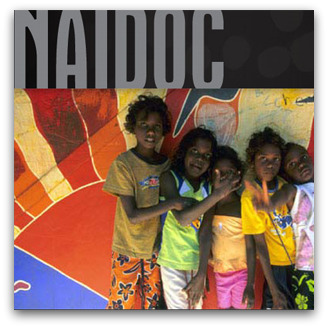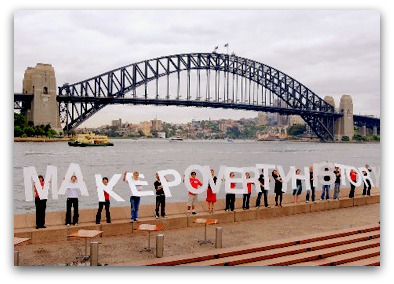Keywords: Racial Discrimination
-

INFORMATION
- Jenny Macklin
- 17 March 2011
18 Comments
Dear Father Brennan, I do not accept the way you have characterised the Government's actions in relation to the Racial Discrimination Act 1975 and the Intervention, and am concerned that your article could mislead people into considering that the Government's measures in the NT are discriminatory.
READ MORE
-

RELIGION
- Frank Brennan
- 13 February 2011
9 Comments
Three years since Kevin Rudd's National Apology to the Stolen Generations, discriminatory aspects of John Howard's Intervention are still in place. Let's hope that by the fourth anniversary, we are no longer singling out Aborigines for such 'special treatment'.
READ MORE 
-

AUSTRALIA
- Sarah Burnside
- 09 February 2011
7 Comments
There is evidence that, far from its stated aim of 'normalising' remote communities, the Intervention is in fact counter-productive. A few days out from the anniversary of the Apology to the Stolen Generations, the question hovers: when will the Intervention end?
READ MORE 
-

MARGARET DOOLEY AWARD
- Jonathan Hill
- 01 December 2010
5 Comments
Dhurga is a dead language. At my school however it is taught to every student, Indigenous and non-Indigenous. A subject like this is quite radical in an education system that is heavily focused on churning out workers rather than thinkers.
READ MORE
-

RELIGION
- Frank Brennan
- 01 November 2010
3 Comments
There is an emerging Aboriginal middle class. The contested questions in those communities relate to the expensive delivery of services including health, housing and education. The contested issue in the urban community is over self-identification as Aboriginal by persons of mixed descent.
READ MORE
-

EUREKA STREET/ READER'S FEAST AWARD
- Bill Collopy
- 25 August 2010
11 Comments
X people work hard. Y people are natural athletes. Z
people treat the world like they own it. Q people are violent. R people
are drunkards. S people mistreat women. V
people are queue jumpers. Racial generalising becomes racist only if we
accept its false premise.
READ MORE 
-

AUSTRALIA
- John Falzon
- 20 August 2010
20 Comments
Ngunnawal Elder Aunty Janet Phillips says that for Aboriginal Australians
there's no 'justice'; 'just us'.
How can we turn this election into a building block for a more equal society?
The answer involves weighing up the known
policies and track-record of both sides to assess their
impact on the growth of inequality.
READ MORE
-

EUREKA STREET/ READER'S FEAST AWARD
- Nigel Pearn
- 18 August 2010
3 Comments
The book was banned after parents complained about its anti-authoritarian attitude: 'Wanja [the dog] loved to chase the [police] van ... to bark at the van ... to bite at the wheel. The police van would drive away.' Like Jewish humour, Aboriginal humour is a response to a history of oppression.
READ MORE 
-

RELIGION
- Frank Brennan
- 07 July 2010
Fr Frank Brennan's address to the Melbourne College of Divinity
Centenary Conference, Trinity College, University of Melbourne, 6 July
2010.
READ MORE
-

RELIGION
- Frank Brennan
- 07 July 2010
11 Comments
Kevin Rudd stood in the forecourt of Parliament
House Canberra and recalled with great emotion the morning on which he
had welcomed the members of the Stolen Generations. There was no mistaking his sense of solidarity: he knew there and then what it was to be dispossessed,
alienated and outcast.
READ MORE
-

INTERNATIONAL
- Ben Coleridge
- 29 June 2010
16 Comments
The latest G8 meeting sparked new protests at the failure of rich countries to honour their promises to increase aid. The protest pointed not only to the failures of the G8 governments, but also to the limitations of the mantras 'make poverty history' and 'an end to poverty'.
READ MORE 
-

RELIGION
- Frank Brennan
- 23 April 2010
19 Comments
There is no getting away from the public's interest in a human rights act. But the Labor Government has baulked at the recommendation for such an act. While many Australians enjoy adequate human rights, we can do better.
READ MORE 